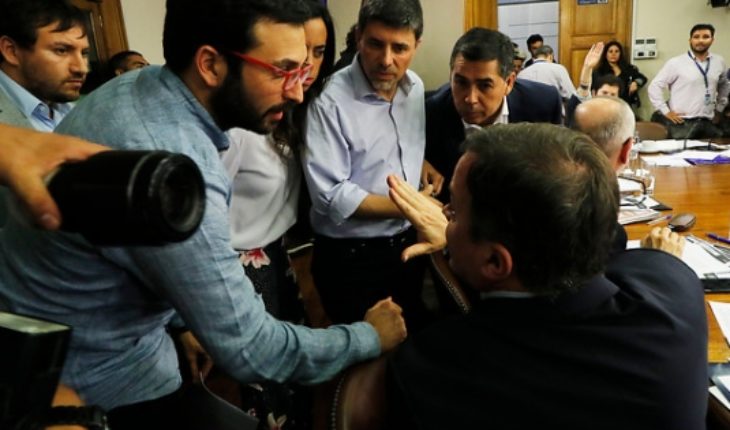A day focused on constitutional reform to enable the constituent process and issues related to the participation of independents, gender parity and seats reserved for indigenous peoples, will mark the agenda of the Senate and the Chamber of Deputies on Thursday.
After the rejection in the lower house of the “transitional rules” within the draft constitutional reform to Chapter XV of the quota matters to independents, the opposition decided to activate a legislative offensive, both in the committees of the Senate and in those of the Chamber of Deputies to replenish these issues. In fact, in the Senate Constitution Committee, opposition lawmakers replenished the indications rejected by the deputies, and last night the bill was dispatched from the body for an eye on the chamber today.
“We must be able to remove barriers to entry so that women, the indigenous world and the independent world have the opportunity to participate actively in this new constituent process,” said DC Senator Yasna Provoste.
The reform for the plebiscite has a fatal deadline of December 28, to meet the times of the Servel, and requires the approval of 29 senators (two-thirds of the room). The indications, meanwhile, need the vote of 25 senators (three-fifths).
According to previous estimates, it is highly likely that the project will be dispatched by the Senate as it was approved in the House, i.e. with the matrix contemplating the plebiscite, and without the indications. In fact, from the right they have been emphatically that they will not give their arm to twist, with the view that gender issues, independents and indigenous peoples were not covered by the original agreement of 15 November.
In fact, Senator Andrés Allamand (RN) stated that these initiatives “are not respecting the agreement” which, in his view, is “very serious.” Meanwhile, his UDI colleague, Victor Pérez (UDI), insisted that “we are going to vote on what the party presidents agreed on November 15 through the technical table, and which they ratified last week.”
The reform returns to the House for its full office this day. However, if the scenario is unlikely that transitional rules will be passed in the Senate, the draft should be settled in Joint Commission.
Likewise, to avoid demonstrations such as yesterday, by order of the president of the upper house, Jaime Quintana, people will not be allowed to enter the stands.
Movements in the Chamber
In parallel, there is also movement in the Chamber of Deputies, because after the fall of the transitional rules in the chamber, Mr Matías Walker (DC), chairman of the Constitution Commission, opted for a parallel path, and immediately brought the vote on the rejected aspects: parity, original and independent peoples, presented yesterday in three bills entered by National Renewal deputies.
However, Walker’s move was questioned by the UDI and this morning the Constitution commission meets again to settle these points.
Once approved in the Constitution Commission, the projects will be seen in the chamber of the Chamber of Deputies in a special session convened for the 18 hours by the President of the Corporation, Iván Flores. To be approved, they need a 3/5 quorum, i.e. 93 deputies
“The idea is for the Constitution committee to pick up the issue, reopen the debate, and receive indications not only from the UDI, which is the complainant, but by any other party that wants to place directions, regardless of whether the paritarian issue is voted on (…) We will have a special session in the afternoon, at 18 hours, to solve the three projects: gender parity, original and independent peoples. There we will be able to resolve the indications that were left out, the product of the process that took day in the afternoon,” Flores explained.
At that session, the draft constitutional reform should also be voted on after his hearing in the Senate, and which returns to the House for full dispatch on this day.
In this scenario, the commitment of RN, after yesterday decided to give in to the House in the face of pressure from the UDI, and called on its parliamentarians to reject the transitional rules, is that these points will be definitively settled through the mechanism of the bills. What’s more, according to RN President Mario Desbordes, there are enough votes to pass.
“Will there be gender parity? I think so, there are the votes and it is legitimate not to agree also (…) Not all National Renewal MPs agree and it is legitimate, but we put enough votes to approve gender parity and the participation of independents,” he said.
translated from Spanish: Second chance: Two-band congress processes backtime plebiscite project and tries to save indications about independents, gender parity and native peoples
December 19, 2019 |





